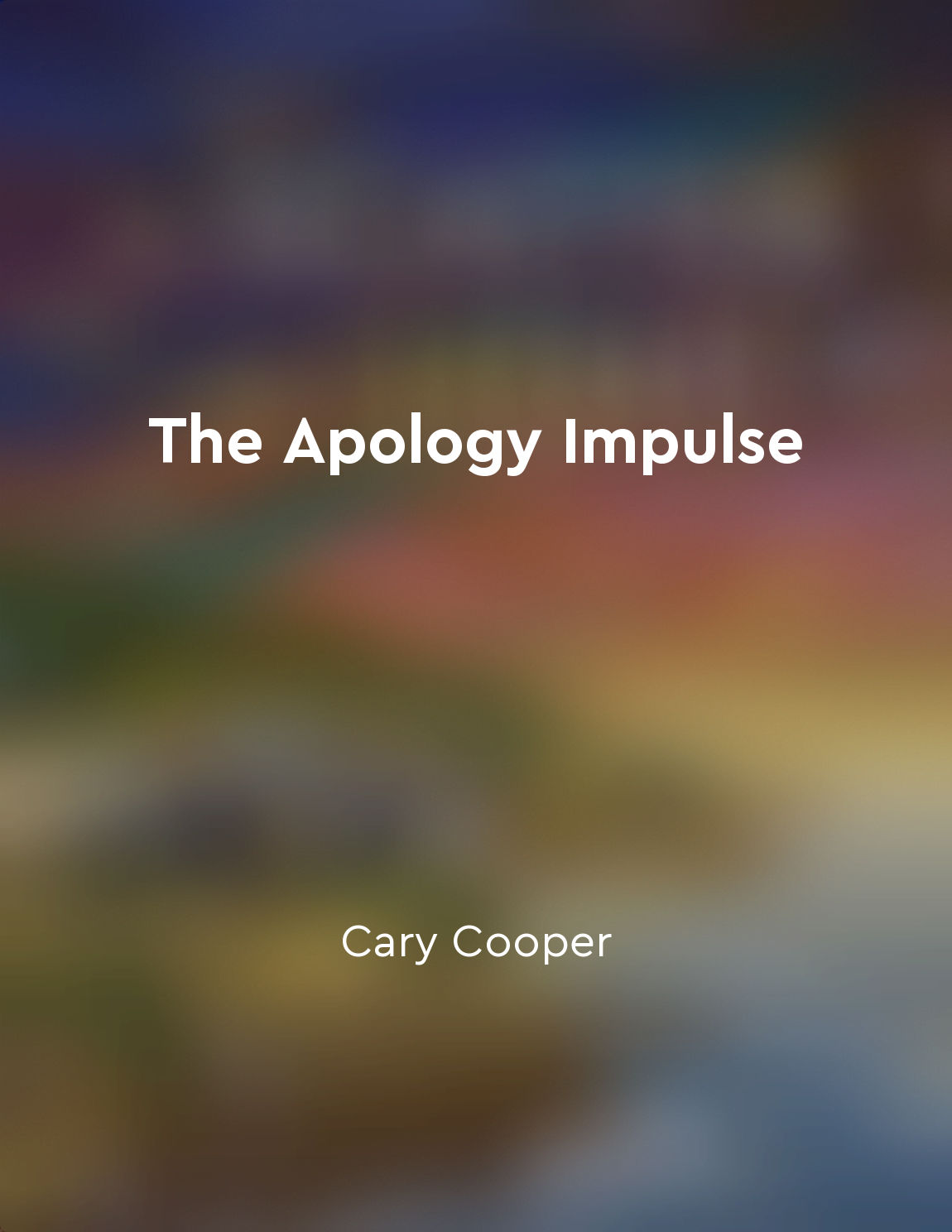The fear of apologizing may stem from a fear of vulnerability from "summary" of The Apology Impulse by Cary Cooper,Sean O'Meara
Apologizing is a difficult task for many individuals. The act of saying sorry can be daunting, as it requires acknowledging our mistakes and accepting responsibility for our actions. This vulnerability can be terrifying, as it means admitting that we are not perfect and that we have caused harm to someone else. This fear of vulnerability can manifest as a fear of apologizing, leading individuals to avoid saying sorry altogether. When we apologize, we open ourselves up to criticism and judgment from others. We are laying bare our flaws and weaknesses, and this can be a frightening prospect. It requires us to let go of our defenses and show our true selves, which can make us feel exposed and unprotected. This fear of being vulnerable can prevent us from apologizing, as we are afraid of the repercussions that may come from admitting our mistakes. Additionally, apologizing requires us to be empathetic and considerate of the feelings of others. It means putting ourselves in someone else's shoes and understanding how our actions have impacted them. This level of emotional intelligence can be challenging for some individuals, especially if they are not used to being in touch with their own emotions. The fear of delving into these complex feelings and facing the consequences of our actions can make apologizing seem like an insurmountable task.- The fear of apologizing may stem from a fear of vulnerability. It requires us to let down our guard, show our imperfections, and face the consequences of our actions. This level of openness and honesty can be terrifying for many individuals, leading them to avoid apologizing altogether. However, by overcoming this fear and embracing vulnerability, we can strengthen our relationships and foster a greater sense of understanding and connection with others.
Similar Posts

Address unresolved issues
It's easy to let those little annoyances build up over time, like dirty socks on the floor or dishes left in the sink. But if y...
Forgiveness is a powerful tool
Forgiveness is not always easy. It often feels like the last thing we want to do when we have been hurt or wronged by someone w...
Appreciation of individuality
There are days when I am struck by the beauty of his individuality. It's not just the way he laughs or the way he looks when he...

The journey to mental wellness is ongoing and requires continuous effort
The journey to mental wellness is one that never truly ends. It is not a destination that you can reach and then simply stop. I...
Be a good conversationalist by being attentive
One of the most important skills in becoming a good conversationalist is the ability to be attentive. Being attentive means giv...
Respect is a twoway street that requires reciprocity
Respect is not a one-sided act; it is a dynamic exchange between individuals that relies on reciprocity. It is a two-way street...

Make others feel important by giving them a sense of importance
Imagine yourself at a social gathering, surrounded by people from different walks of life. Everyone is engaged in conversation,...

Timing is important when delivering an apology
Timing plays a crucial role in the effectiveness of an apology. It is not just about saying sorry; it is about saying sorry at ...

Perfectionism hinders progress and enjoyment
Perfectionism often masquerades as a noble pursuit, but it can create a paralyzing barrier to both progress and enjoyment. When...
Practice selfcare daily
Self-care is not a luxury; it's a necessity. Taking care of yourself should be a priority, not something you do only when you h...

